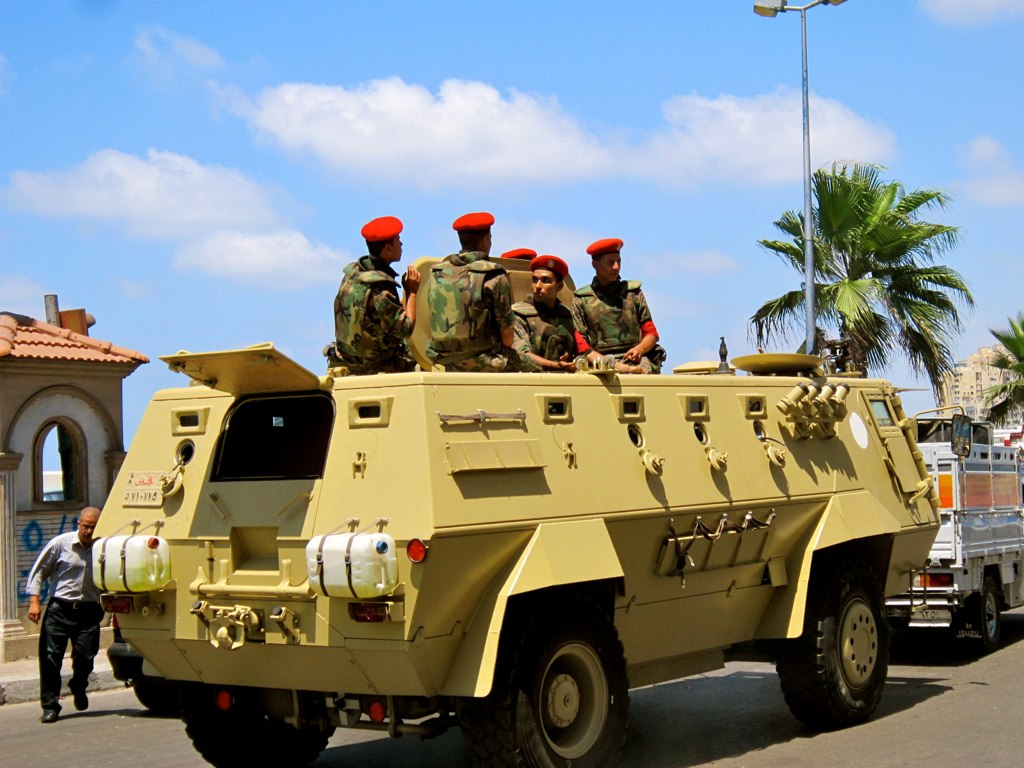By: Aashka Dave

American aid to Egypt has become a contentious subject in light of the recent Egyptian revolution. This aid, $1.3 billion of which is given directly to the Egyptian military, becomes even more controversial after considering the military’s current position in the Egyptian government.
The Egyptian military is noteworthy as the motivating factor behind this second revolution, the reason Egypt has an interim government, and a continuing source of conflict in the country. After taking American aid into account as well, the Egyptian military becomes remarkable for another reason: the military holds a power unparalleled by any other political institution in the country.
Since the military stands to gain much by the furtherance of American aid, and since the military’s actions are not uncontroversial, the question of continued American aid to Egypt becomes a significant one. Should American aid continue, the military will have a reliable means to purchase supplies and to communicate with American leaders. However, the issue is not merely one of aiding a revolution, stopping a coup d’etat, or ensuring democracy. Rather, American aid is significant because of its impact on the American economy and foreign relations both in and outside of Egypt.
On the homefront, aid to Egypt could have a significant impact on the American economy. The Egyptian military is required to use their American aid to purchase only American-made goods. These goods require manufacture by several American companies, and as such, hold a major stake in a number of livelihoods and in the success of the American economic recovery. Pennsylvania alone plays host to 44 companies that are “involved in production of the M1A1 [tank], which has been the centerpiece of U.S. aid to Egypt.” Factories in Michigan and Ohio are also involved in the manufacture of goods for the Egyptian military.
From a foreign relations perspective, several Middle Eastern countries, Israel included, have a vested interest in the continuation of American aid because it provides much-needed stability to a rather unstable part of the world. Thanks to American aid, the Egyptian military is fully equipped, helping to ensure a balance of power, even if that balance is a tenuous one. Were the Egyptian military not poised as it is, the threat of another Islamist country in the region could very well become a reality.
The now-overthrown government headed by Mohammed Morsi, with its increasing inclination towards making Egypt an Islamic state, would have presented a greater threat to the American emphasis on democracy — at least as the case now rests. For that reason, many Middle Eastern countries view the Egyptian military’s current control of the country as a positive; if the military is in control, then an Islamist regime most certainly is not. And, although the military may be taking a harsh stance toward Islamist parties in Egypt at the moment, particularly the Muslim Brotherhood affiliated with Morsi, the potential for inequality under Morsi’s rule can be viewed as a far greater threat.
In fact, Saudi Arabia, the UAE, and Kuwait all viewed Egypt’s current position in exactly that frame of mind. Together, the three countries have committed nearly $12 billion to the Egyptian military, an amount which far outstrips any American aid that the military may (or may not) receive from Washington.
However, even though American aid might pale in significance when compared to the aid the Egyptian military is about to receive from its neighbors, American aid does serve as a testament to Egyptian-American relations. By discontinuing aid, America will lose the little influence it has over the state of political affairs in Egypt at the moment. Moreover, the flow of money and military goods between America and Egypt has created viable channels of communication between the two countries. Should America withdraw its aid of the Egyptian military, such communication would likely cease. Additionally, as communications from America become less frequent, another country — possibly Saudi Arabia, the UAE, or Kuwait — would likely step in as a major source of influence in Egypt.
Having taken these economic and political factors into account, it is no wonder that Washington is hemming and hawing over the issue of aid to Egypt. A swift decision made in the heat of the moment could play out in a number of different ways and have a number of unintended consequences. It might just be that playing the “wait and see” game for a little longer can not only help Washington prevent any potential domestic fallout, but can also help maintain the tenuous balance of power in the Middle East.

